Social Work News
June PTSD Awareness Month
Falk College, National Science Foundation(NSF) REU Program Host Discussion Series for PTSD Awareness Month in June
To educate the local community about issues related to Posttraumatic Stress Disorder (PTSD), Syracuse University’s Falk College, is offering a discussion series during the month of June, which is designated as National PTSD Awareness Month. PTSD is a psychiatric disorder that can occur following the experience or witnessing of life-threatening events, such as military combat, natural disasters, terrorist incidents, serious accidents, or physical or sexual assault.
The discussion series to raise public awareness of PTSD and its effective treatments is free and open to the public. It takes place in conjunction with the Trauma Research Education for Undergraduates program, a joint effort by Syracuse University, SUNY Upstate Medical University and SUNY Oswego to improve access to research experiences for groups typically underrepresented in research.
The project, “Training Diverse Undergraduate Teams of Veterans and Non-Veterans to Conduct Trauma Research with Veterans,” is directed by Brooks B. Gump, Falk Family Endowed Professor of Public Health and co-directed by Professor Karen Wolford, who also coordinates the interdisciplinary graduate certificate program in trauma studies at SUNY Oswego.
The discussion series includes:
Wednesday, May 26 at 2:00, Virtual
Scott Aubin, U.S. Air Force veteran, PTSD awareness instructor, “Dealing with unrecognized PTSD”.
Wednesday, June 2 at 2:00 pm, Virtual
Kyle Possemato, clinical research psychologist, Syracuse VA Center for Integrated Healthcare, “Novel Interventions to Engage Veterans with Unmet Mental Health Needs in Care”.
Monday June 9 at 2:00 pm, Virtual
Thom DeLara, Professor of Practice and Chair of the Department of Marriage and Family Therapy at Syracuse University “Systems Theory, Trauma and Research”.
Wednesday, June 16 at 2:00 pm, Virtual
Keith Alford PhD, Syracuse University Chief Diversity Officer, “Racial, cultural and ethnic response differences to PTSD”.
Wednesday June 23 at 2:00, Virtual
Lt Col. Ian Stewart MD, FACP, FASN, U.S Air Force, Medical Corps, Bethesda, MD. “Long-term mental and physical health after combat trauma”.
Wednesday June 23 at 3:00, Virtual
Jeffrey T. Howard, PhD, Assistant Professor, Department of Public Health, College for Health, Community and Policy, University of Texas at San Antonio, “Military Exposures and Accelerated Aging: Understanding Trauma as a Chronic Disease.”
Supported by a National Science Foundation Research Education for Undergraduates grant and the Institute for Veterans and Military Families (IVMF), this REU program spans one year, including an intensive six-week summer program in June. This program provides research training to increase skills in conducting trauma research while increasing a student’s ability to gain admission to competitive graduate programs.
“Through a competitive national review process, we have selected a group of student-Veterans and traditional students to complete this research training this summer,” says Wolford. “The students will be paired on teams with mentors to research PTSD and will later present their research at national conferences”.
“As part of this research training, we invite guest speakers who have expertise in the area of PTSD to inform our research trainees on cutting edge developments on traumatic stress research. We open these expert talks to the community as part of the June Posttraumatic Stress awareness month, which is an ongoing national effort to educate about PTSD,” Wolford adds.
For more information about the speakers or REU program, contact Moise Laub at mplaub@syr.edu or visit traumaresearch.syr.edu.
Watch Falk College’s Commencement and Convocation Ceremonies
Chancellor Syverud addressed students in the School of Architecture; College of Arts and Sciences; Maxwell School of Citizenship and Public Affairs; David B. Falk College of Sport and Human Dynamics; School of Education; and University College during the ceremony Saturday, May 22.
During the commencement ceremony professor’s David Larsen and Brittany Kmush in Falk College’s Department of Public Health both received the Chancellor’s medal for their work helping Syracuse University to successfully navigate the COVID-19 crisis. Their expertise in endemiology and public health ensured that the University’s policies were informed by data and aligned with best practices. The Chancellor’s Medal is the highest honor Syracuse University offers and is rarely given. Both had also received the Chancellor’s Citation for Excellence during this year’s One University Awards for their invaluable contributions, extraordinary work and selfless efforts to ensure a safe, healthy and rewarding residential experience for our students, faculty and staff in the midst of the global COVID-19 pandemic.
Falk College also presented a live virtual Convocation at 11 a.m. ET on Saturday, May 22. Watch the recording below.
Congratulations Class of 2021!
Along with Dean Murphy, the entire Falk College community of students, faculty, staff, alumni, community partners and friends, congratulates the Class of 2021! Over the past several weeks, departments across Falk College honored student achievements and celebrated the graduating Class of 2021, which are detailed on individual department websites.
Graduates and families should visit the main page on the Commencement website on Saturday, May 22 at 11 a.m. EST to view the virtual school and college convocations, including the Falk Convocation, and livestream of all Commencement ceremonies. Recordings of virtual convocations will be posted online so that graduates and their families can view them at a later date.
Details about Syracuse University Commencement weekend, May 22-23 are available, including specific information about safety protocols for those attending in person.
“To the Class of 2021, as the newest Falk alumni, you join an accomplished community of socially responsible citizens who can and who must lead change,” notes Diane Lyden Murphy, dean, Falk College.
We know you will lead the way! Congratulations, and best wishes!
Social Work Awards 2021
The School of Social Work in Falk College is pleased to recognize the outstanding work of its undergraduate and graduate students for excellence.
Undergraduate Convocation Awards
Ronni D. Isenberg
Bachelor of Science in Social Work Award
This award is for a graduating Social Work senior in good academic standing, involved in social work activities, community, and university contributions.
Emily Wagner
Catherine Mary Esposito Achievement Award
This award is given to an outstanding undergraduate student who has demonstrated a commitment to clients with developmental disabilities and are in good academic standing, but more importantly, have solid success in the field with the specified population.
Jacob Aaron Aldinger
Rhonda B. Cohen Prize in Gerontology Award
This award is named in honor of Rhonda Cohen, who graduated from the MSW program in 1983 and passed away at a young age. She was an advocate for the elderly. The award criteria include cumulative GPA, community service, and an interest in working with older adults.
Sarah Faith Millward
Elizabeth Brown Thoreck Student Achievement Award
This award is presented to a non-traditional aged undergraduate student who is in good academic standing in the academic arena and the field placement setting.
Naomi Duncan
Keith Anthony Alford Diversity and Inclusion Award
This award is given to an undergraduate, in good academic standing, who has demonstrated in their academic program and field placement setting a commitment to cultural competence and diversity as delineated in the National Association of Social Workers (NASW) Code of Ethics.
Katherine Koehler
Scholastic Excellence Award
This award is given to an undergraduate with the highest cumulative GPA among graduating seniors.
Cyan Ariel Perdue
Carrie Jefferson Smith Social Justice Award
This award is given to an undergraduate student who has demonstrated a commitment to social justice, particularly in the area of improving the lives of victims impacted by the continuum of domestic violence.
MSW Convocation Awards
Laura Elizabeth Buys
Kenneth J. Marfilius Student Veteran Award
This award is given to a graduate student in good academic standing, who is a military veteran. The award is based on GPA, community, and University contributions.
Evan Thomas Davis
Keith Anthony Alford Diversity and Inclusion Award
This award is given to a graduate, in good academic standing, who has demonstrated in their academic program and field placement setting a commitment to cultural competence and diversity as delineated in the National Association of Social Workers (NASW) Code of Ethics.
Kristina Marie Dullen
Virginia Insley Award
This award is presented to an outstanding Social Work MSW Health Care Concentration student who is interested in Maternal and Child Health.
Nathan Patrick O’Donnel
Catherine Mary Esposito Achievement Award
This award is given to an outstanding graduate student who has demonstrated a commitment to clients with developmental disabilities and are in good academic standing, but more importantly, have solid success in the field with the specified population.
Mark Sukonik
Mary Pat Cotter Remembrance Award: Mark Sukonik
This award is given to a graduate Social Work student for contributions to substance abuse and/or HIV/AIDS.
Amber Megan Deyo
Rhonda B. Cohen Prize in Gerontology Award
This award is named in honor of Rhonda Cohen, who graduated from the MSW program in 1983 and passed away at a young age. She was an advocate for the elderly. The award criteria include cumulative GPA, community service, and an interest in working with older adults.
Jennifer Christie Finn
Carrie Jefferson Smith Social Justice Award
This award is given to a graduate student who has demonstrated a commitment to social justice, particularly in the area of improving the lives of victims impacted by the continuum of domestic violence.
Falk College Scholars and Marshals
Katherine Koehler
Falk Scholar
Falk College Scholars represent undergraduate students in Falk College who display academic excellence, exceptional campus and community engagement, and personal integrity.
Naomi Duncan (SWK)
Falk Marshal
Senior Class Marshals have excelled during their time on campus and exemplify the spirit of the senior class. The selection committee assesses the nominees on scholarship, academic honors, student organization involvement, and campus/community service.
Ronni D. Isenberg (BSSW) & Benjamin John Phelps (MSW)
SWK Department Marshal
The School of Social Work department marshal displays academic excellence, exceptional campus and community engagement, and personal integrity.
2021 Phi Alpha Honor Society, Zeta Gamma Chapter Inductees
This year’s inductees include 12 BSSW students and 20 MSW students into the Syracuse University Falk College School of Social Work 2021 Phi Alpha Honor Society, Zeta Gamma Chapter.
The concept of a National Social Work Honor Society came from a group of undergraduates at Michigan State University. In November 1960, a national honor society committee was formed and in 1961 the society came into being. The Syracuse University Zeta Gamma Chapter was founded in 1996 as part of the School of Social Work’s 40th Anniversary Celebration.
The charge and purposes of the Phi Alpha Honor Society are:
- To recognize and encourage scholastic achievement among the students who are majoring in social work.
- To improve and further the goals and objectives of social work by encouraging objectivity and awareness of current developments and practices in the various fields of social work.
- To improve and further the goals and objectives of social work by stimulating research in preparation for a career in social work.
Undergraduate (BSSW):
Emily Clapper
Sophia Violetta Dimambro
Talia Rae Hazlett
Ava Marion Henderson
Sara Hyams
Grace Elaine Jacobs
Chevon C Janczuk
Averi Nicole Kaplowitch
Marija Mitov
Julianna Reese Sutow
Aglaeth Vazquez
Alexandra N. Vroman
Graduate (MSW)
Julie Marie Assaf
Tiffany Marie Bombardo
Laura Elizabeth Buys
Amy Cousins
Vera Dickey
Kristina Marie Dullen
John Michael Endries II
Jennifer Christie Finn
Nadine Flynn
Mikayla Hermann
Michelle Lucille Hopp
Lorraine Allison Howell
Emanuel Jenkins Sr.
Jasmine Lightburn
Allie S. LoPresti
Shannon Lee McMann
Sarah Elizabeth Nunes
Sarah Kay O’Meara
Benjamin Phelps
Brandi Filicia Pidkaminy
Tapping into Resources for Academic Success
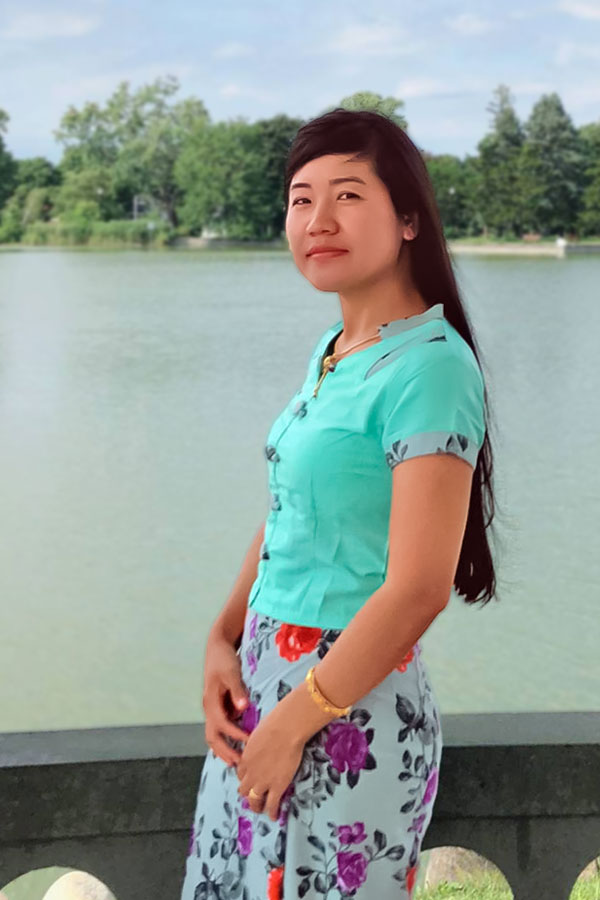
Khin Aung, a major in Social Work, is a native of Myanmar and immigrated to Syracuse from Thailand. On top of being a wife and mother of two middle-school sons, she is the first in her family to go to college. Although she is juggling a lot of responsibility as well as learning English as her third language, she has been able to achieve academic success. One of her achievement strategies has been Syracuse University’s Center for Learning and Student Success (CLASS).
The CLASS center offers tutoring as well as academic coaching that teaches students how to study effectively. Peer educators also provide support for maximizing online learning, where students can construct a plan for success in any online course, and in peer-to-peer mindfulness workshops focused on common issues that students experience in completing assignments or taking exams. To provide course-specific tutoring for a wide range of courses and majors, CLASS uses a scheduling and payment platform operated by Tutor Matching Service.
Aung, a Higher Education Opportunity Program scholar, has found that CLASS tutors help ensure that she understands the assignment and can check her reading comprehension on material that she has reviewed on her own.
When Aung first decided to go back to school, she started with English as a Second Language at the Syracuse Educational Opportunity Center (SEOP). Then she studied for her GED. “After I passed the GED, I decided I could go to college, so I took some pre-college courses, also at SEOP,” Aung explains Then I earned my associate’s degree at Onondaga Community College. Finally, I enrolled at Syracuse.”
Aung asks professors for permission to record some lectures, so she can go back over them to make sure she fully understands the material. “Then, if I don’t understand the writing prompt or assignment instructions, I can work with a tutor to get help or to make sure I understand the reading,” she says.
Noting that her social work professors really want her to succeed, Aung says, “I think students should ask for help every time they have a chance. I go to office hours, talk to the teaching assistant, talk to professors or get a tutor.” She describes herself as a shy person, even in her first language, but notes that everyone at CLASS and at Syracuse University is so willing to help that she no longer hesitates to ask questions if there’s something she doesn’t understand completely.
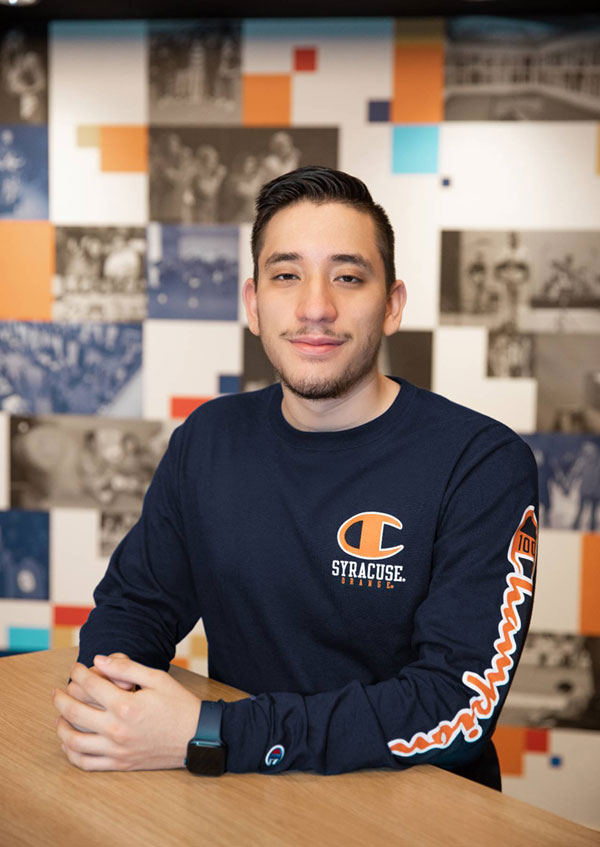
Some students seek tutoring only after they have academic setbacks, but first-year student Alejandro Parra, has also tapped the Center for Learning and Student Success (CLASS) early in his Syracuse University career. Coming from Queens, New York, Parra was a little nervous when he first arrived at Syracuse in fall 2020.
“I was worried about being academically challenged or overwhelmed,” Parra says. “I was taking chemistry and statistics and economics, which are known to be hard courses. I heard about CLASS and went to check it out.”
Wanting to start his college career on the right foot, he enrolled in group tutoring for all three courses. He says, “I had the best experience and, even in the group tutoring sessions, I found it very individualized. It was really helpful to meet with the tutor before the weekly lecture to get an overview of the material. Then, in lecture, I got more out of it and was able to ask better questions to be sure I really understood the material.”
“My advice to any new student at Syracuse University is to use all of the resources that are here. I participated in tutoring but I also went to my professors’ office hours—I actually wrote it down on my schedule.”
He wants students to know that, while it may seem scary at the beginning, “all of the tutors at CLASS really want to help you, that’s why they are there. They know the material and can help you be sure you understand the key concepts. Also, going to CLASS taught me study strategies, like going through my notes and putting key equations and important topics on summary pages in my notebook, which helps me prepare for exams.”
CLASS is now recruiting peer tutors and academic coaches for Fall 2021.
~ Adapted from a Syracuse University News story by Ellen de Graffenreid published on Friday, May 7, 2021.
New book explores all-generations expansion of Social Security
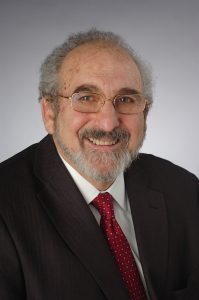
In their newly-released book, co-authors Eric R. Kingson, professor, School of Social Work, and fellow policy expert, Nancy J. Altman, president of Social Security Works, make the case for an all-generations expansion of Social Security. Released on April 13, “Social Security Works for Everyone: Protecting and Expanding the Insurance Americans Love and Count On,” shows the benefits of doing so for Americans of all ages, races, genders, and ethnicities.
As he thinks about his students, Kingson explains, “knowledge of Social Security and related policies is important for students to understand: as professionals who will be assisting people in gaining access to various services and benefits; as advocates; as citizens, who need to understand the protections they earn for themselves and their families through their hard work and payroll contributions; and, as both citizens and professionals, who need to understand the historical context and implications of various policy proposals.”
Kingson writes about the politics and economics of aging, generational equity, and caregiving and is the co-founder Social Security Works in 2010, currently serving as its board chair. Says Kingson, “it’s always good for professors to have knowledge that goes beyond book-learning. More directly I like to think that writing this book and, importantly my policy and advocacy work, allow me to bring some of the policy issues I teach about to life.”
Scholars and political activists who are nationally known for their work on Social Security, Altman and Kingson have deep knowledge of the program that extends back over four decades. One or both have served as policy advisers on bipartisan commissions under the Reagan, George W. Bush, Obama, and Biden administrations. In addition, they founded the non-profit organization Social Security Works in 2010, as well as the Strengthen Social Security Coalition, composed of more than 350 of the nation’s leading national and states seniors’, women’s, disability, civil rights, netroots, and other organizations. In 2015, they put forth a compelling brief for America’s time-tested and beloved Social Security program in Social Security Works!, which they now expand upon in their new book.
To learn more about the book, visit The New Press publisher’s site.
Falk College Board Member and Social Work Alumna Honors an Orange Friendship
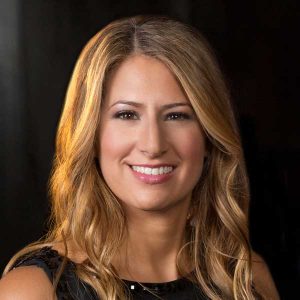
It was the place where she met her best friend Heidi and her husband Jason while preparing for a career as a social worker. She recently became a member of the Falk College Advisory Board.
In December 2020, Stacy established the Sunflower Scholarship, a name which holds special significance for her and Heidi’s friendship. The scholarship will support current social work students by defraying tuition costs. “It’s something that I feel so connected to, and I know how important it is.”
Growing up, Stacy knew she wanted to be in a helping profession. “I knew someone at our synagogue who was a social worker,” she says. Stacy found her way to Syracuse University” I really didn’t find myself until I got to college and started my social work classes. That’s when I excelled. I knew I was in the right place and in the right profession.”
While the University was a big place, the School of Social work made her feel right at home. “For me, coming from a small town, small school, I liked that personal experience.” she says You get to actually know everyone in your program.”
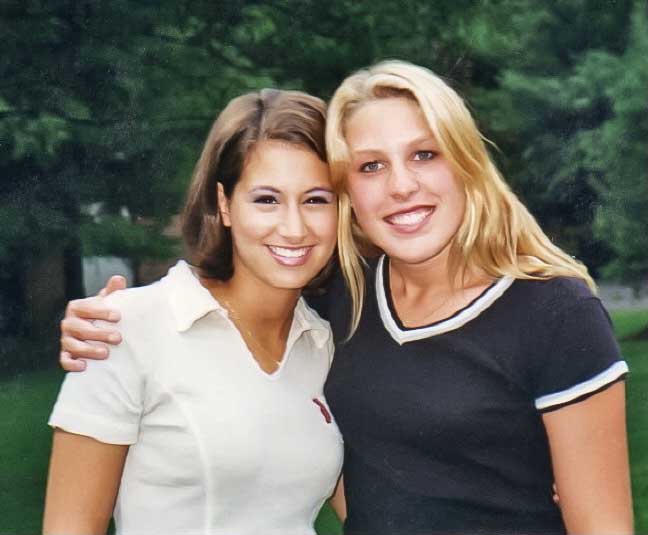
Stacy’s best friend was someone she met her first day at Syracuse. Heidi was a social work major, too, and coincidentally the two lived on the same floor in Day Hall. “We clicked on day one and became good friends very quickly,” she says.
As a student, Heidi relied on scholarships to pursue her passion for social work. Stacy’s parents, inspired by Stacy’s love for the social work program, became supporters the School of Social Work. “My parents knew how much I loved the program, so they started giving. They designated their gifts to the Dean’s scholarship fund because they knew Heidi would be a beneficiary.” Thanks to the support of student scholarship funds, Heidi graduated and went on to earn a master’s degree. Today, she owns two yoga studios where she connects her social work practice to yoga.
Seeing firsthand the importance of scholarship funds, Stacy decided to continue her parents’ legacy of giving by establishing the Sunflower Scholarship fund.
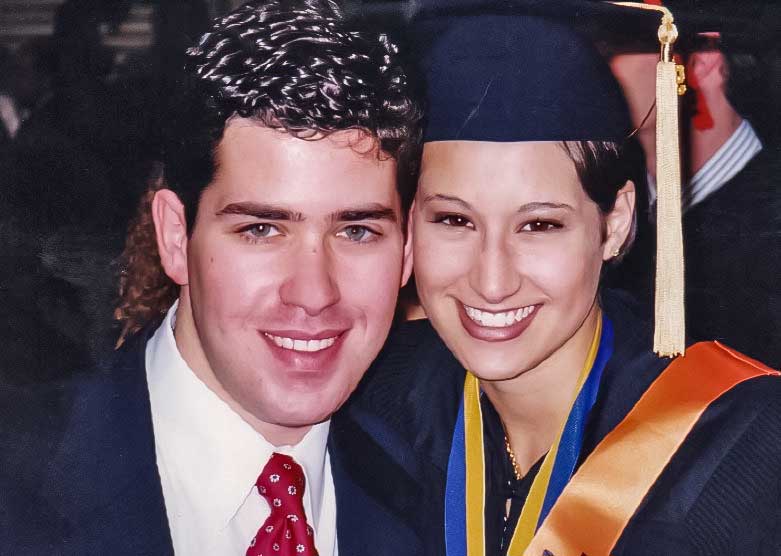
Stacy met her future husband, Jason, while at Syracuse University, where Heidi and the School of Social Work played a prominent role in his marriage proposal to her, which included a surprise trip to Paris. “I had a test scheduled right after the weekend he planned to surprise me with a trip to Paris. He knew that being the kind of student I was, I would never get on a plane knowing I had a big test. He called my professor, Robert Keefe, and told him he was planning to propose. He asked if I could take the test at a later time. My professor was so excited to be involved, he ended up changing the test for everyone,” she says. Stacy and Jason are a second-generation orange love story, as Jason’s parents also met at Syracuse University—his mother from the School of Social Work and his father from the College of Law.
“The most impactful aspects of my Syracuse experience were the classes I took and the professors I had at the School of Social Work,” she adds. In social work education, Stacy says nothing prepares students like the social work field placement. “That’s where you learn how to be a social worker,” she says. “That’s where it all comes together—you really have to take what you’ve learned in the classroom and apply it. You have to sit across from someone and speak to them, hear them tell their story.”
Her BSSW from Syracuse granted her advanced standing in Columbia University’s graduate program, where she completed her master’s degree in one year as opposed to two. She worked for a number years in the field of mental health before raising her family. Now, she serves as a board member for the National Alliance on Mental Illness of New York City and volunteers as a helpline responder, where she gets to use her social work degree.
“I feel most connected to my Syracuse experience and my Syracuse professors,” she says. As a member of the Falk College Advisory Board, Stacy will be actively engaged with Falk College leadership.
New Fund Supports Social Work Student Field Placements
In Falk College, field placements are a critical focus of graduate and undergraduate degree programs. The School of Social Work’s Office of Field Instruction has long-standing relationships with nearly 200 human service agencies across 14 New York counties, offering students a wide range of opportunities to train in real-world settings alongside agency-based field instructors, many of whom are alumni—more than 70 percent in 2020-21.
Thanks to a generous donor, the newly created Social Work Field Education Discretionary Fund, there is a designated fund that specifically helps cover the costs associated with field placements, such as transportation, background checks, and fingerprinting fees. The funds help manage unanticipated costs so that students focus on what’s most important—course work and field work.
According to the Bureau of Labor Statistics, employment of social workers is expected to grow 13 percent from 2019 to 2029, much faster than the 4 percent average growth rate for all occupations. Many social work students pursue careers as social workers, others use the degree as a foundation to enter other helping professions such as teaching or law, or enter medical fields such as pediatrics, psychiatry, or nursing.
“The Office of Field Instruction has a strong belief in ensuring equal opportunity when it comes to securing internships, and this fund helps us do that,” says Tracy Walker, LMSW, Director of Field Relations in the School of Social Work. “Through the Social Work Field Education Discretionary Fund, students can choose a field placement experience that meets their professional interest and goals without financial barriers getting in the way.”
Mya Martin, an advanced-standing MSW graduate student pursuing her passion for helping others. “I’ve always wanted to help individuals that look like me that may be dealing with mental health-related issues.” Her field placements as both an undergraduate and graduate student have expanded her understanding of social work and the differences in micro and macro practice. Her most recent placement at Mckinley Brighton Elementary required a background check. “I reached out to the Field Office. They were incredibly helpful and easily reimbursed me for the out-of-pocket expenses.”
Allie LoPresti, another social work graduate student, plans to use her degree to work with children and families in a school setting. This year, her field placement at Grant Middle School required fingerprinting. “Through my placements I have gained many professional connections and opportunities to observe and work side by side with professionals with a wide variety of experience,” she says. “I have enhanced my creative problem-solving skills, as well as advocacy and communication.
The experience my field placements have given me also come with increased confidence in my training, education, and skills as I enter the field of Social Work.”
Social work field placement sites range from not-for-profit human service organizations, government organizations, school systems, correctional facilities, mental health clinics, and hospitals, among others. More information about field education in Falk College.
Pen pal program launches during National Professional Social Work Month
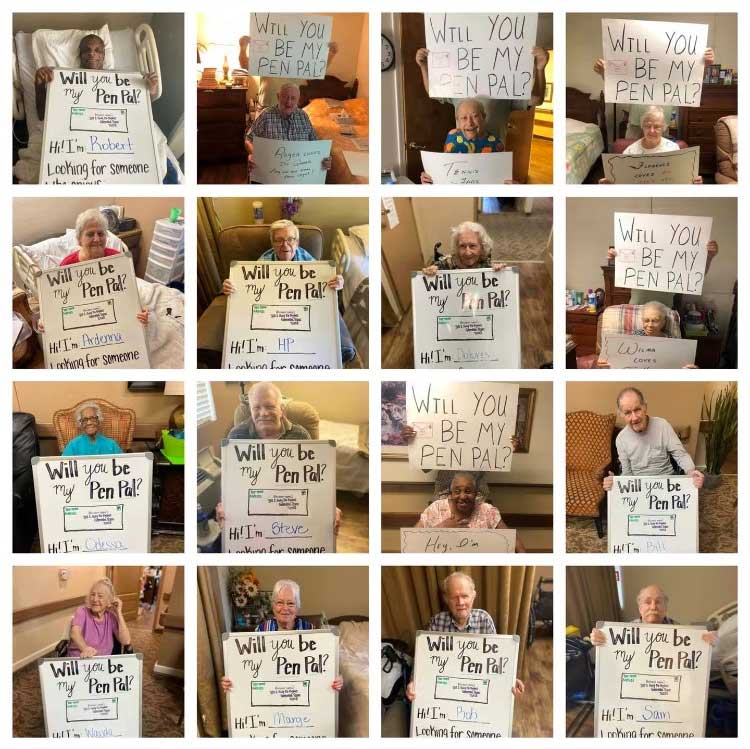
Social Workers United, a graduate student organization in Falk College’s School of Social Work, recently introduced its members to a pen pal program with senior citizens. Many social work students engage with the elderly during field placements and volunteer activities and continue to serve this population after graduation.
The pen pal program launch, which is open to the University community, coincides with National Professional Social Work Month. Recognized each March at Syracuse University, this month-long commemoration honors one of the largest professions in the country. This year’s theme is “Social Workers are Essential.”
“Social workers have been advocating and caring for others across the country as our nation has experienced an incomparable pandemic, racial unrest, and economic uncertainty,” says Jennifer C. Genovese, the master of social work (MSW) program director and a faculty member of the School of Social Work, as well as an alumna of the program. “We are so proud of our students who truly reflect the values of social work. Their ongoing commitment to caring for others symbolizes that social workers are essential.”
Handwritten letters offer a meaningful way to stay in touch with loved ones, especially for the elderly. “Everyone needs connection right now,” says Ben Phelps, a second-year MSW student and the president of Social Workers United. “People don’t write letters anymore. Younger generations are not used to doing it. But for many senior citizens, writing and receiving letters is what they do and what they love.”
This past fall, Social Workers United also sponsored its annual food drive for the Syracuse community that yielded almost $1,000 in donations for the Rescue Mission. The drive combined virtual and contactless donations. Says Phelps, “I knew about 25 percent of the people sending me money through Venmo, which was rolling in constantly from classmates and their families.”
Seeing the community need-and the community response to helping-the students wanted to do more. When Phelps saw a social media post aimed at connecting pen pals with senior citizens, he and his peers decided to take action.
As participants in the Ready to Care Program, Social Workers United is directing those interested in reaching out to senior citizens to an online system that collects and distributes the letters. The process is easy, allowing users to upload a handwritten letter and image or complete an online form that places content into an appealing visual format. The letter writer simply hits the send button and letters are matched with a recipient who receives a printed letter by mail. Letter writers can share their email or mailing address to stay in touch although it is not required. For more information about the pen pal program, please email bephelps@syr.edu.
“By their actions, Social Workers United members, led by president Ben Phelps and vice-president Laura Buys, have demonstrated the core values of our profession: service, social justice, dignity and worth of the person, importance of human relationships, integrity, and competence. Even during a year of uncertainty and remote learning, these MSW students have found ways to contribute to the local and national community,” notes Genovese.
Social work is one of the fastest-growing professions in the United States according to the U.S. Bureau of Labor statistics. Social workers serve in many capacities across the life continuum, helping individuals and families from infancy through the senior years. “The recent events in our society have promoted renewed interest in having social work skills applied in a variety of ways to ensure that social justice is at the center of our response to need on every level,” says Professor Carrie Jefferson Smith, director, School of Social Work.”
Thousands of professional social workers have been trained at Syracuse University’s School of Social Work for more than 60 years. Many have chosen to remain and practice in the Central New York area.
Learn more about Social Work Month 2021.
Online Master of Social Work Opens Doors to Career Changers, Working Professionals
The School of Social Work will welcome its first cohort of online master students in May, and Professor Ken Marfilius is excited.
“We are already seeing strong applications for our first cohort of 50 students. I think the COVID-19 pandemic has accelerated acceptance of online learning,” Marfilius says. “The flexibility that this program offers is appealing to working professionals, including active duty military and veterans. It will serve anyone who wants to work for social and economic justice in the digital age and beyond.”
Carrie Smith, professor and interim director of the School of Social Work in Falk College, agrees and notes that ubiquitous technology is only part of the equation.
“What has happened with COVID is that it has created this giant pause for the country and the world,” Smith says. “People have fewer distractions, they have been stilled and are seeking information. A lot of that information has been unsettling, frustrating and has impacted lives in unanticipated ways.
“Historically, when there have been times of crisis, depression, despair or economic change, people decide they are going to change careers and do something to give back,” Smith adds. “Social work is one of the original giving back professions.”
The online M.S.W. incorporates the same social and economic justice approach as Syracuse’s existing social work programs. Developed in partnership with 2U, the 60-credit degree can be completed in 36 months, including 1,000 hours of field placements, and students with a bachelor’s in social work can pursue an accelerated track consisting of 36 credits that can be completed in 24 months with 500 hours of field placement.
Students can choose from two tracks: The advanced clinical practice concentration prepares mental health clinicians for practice as a licensed clinical social worker (L.C.S.W.), and the advanced integrated practice concentration prepares students for direct practice and leadership in a wide range of human services organizations. All of these options are accredited by the Council on Social Work Education and prepare students to sit for the Association of Social Work Boards licensing examination.
“Having earned my master of social Work at Syracuse University, I am proud that we will be offering this fully integrated online M.S.W.,” says Diane Lyden Murphy, dean of the David B. Falk College of Sport and Human Dynamics. “The program maximizes access to the social work profession and flexibility for many of our interested students. The online M.S.W. offers entrance to a lifelong socially responsible career where professionals engage and guide people through mental health, behavioral health and social challenges.
“The School of Social Work is a legacy program, recognized for its excellent graduates, high licensing pass rates and alumni practicing across the nation,” Murphy adds. “We are pleased to continue our strong tradition of professional education for online students.”
Marfilius says that the University’s social work faculty are excited about the opportunity to reimagine how courses are delivered and the opportunities that students will have to do their fieldwork close to home. There are live class sessions and asynchronous learning elements that faculty have designed to work together seamlessly.
“People are doing more online, it’s less intimidating,” says Smith, “but our faculty are also very focused on ensuring that we maintain the human connection in the context of the technology.”
Students will also experience the human connection through field placements in their own geographic area. Marfilius, who has experience with online education while in the military, says, “Social work needs leaders. We know that prospective students—as I saw when I was in the Air Force—want to give back to and support their communities while gaining additional leadership skills.”
Tracy Walker, director of field relations, agrees.
“Ideally, we want students to complete their field work within 60 miles of where they reside. Each student will be working with placement specialists to determine their interests and goals,” Walker says. “We are building partnerships with a wide range of organizations including government, not-for-profit, health care and the Veterans Administration.”
Walker says that students get support at all phases of the program, and adds, “The field team will interact with the students and their field sites just like they are in our community. It is a priority for us to be available and responsive.”
Student internships provide progressive learning, with a virtual field experience in the first semester building to a generalist approach, then moving into each student’s professional focus. This virtual anchor course helps students engage in risk management, intervention strategies and ethical decision-making in a setting that simulates what students may encounter in practice.
“Research shows that the use of simulation can be really important to developing direct practice skills,” Walker says. “Students engage with standardized patients – actors who are trained to simulate clinical situations and typical client interactions – and receive feedback on their approach before they work directly in an organization.”
There are also field seminars, where students and faculty have broad and open discussions integrating what students learn in the classroom with what they experience in their internships. This structure was piloted in Fall 2020 for current residential program students with positive feedback.
“It’s become abundantly clear that the future holds more need for social workers. The quality of education we provide prepares these students to make a connection person-to-person, build trust and problem-solve with clients,” Smith says. “With the expanded use of technology to connect people with resources and extend the reach of human services professionals, we’re expanding the tool set that MSW graduates will have to respond to people in need of resources.”
~ A Syracuse University News story by Ellen de Graffenreid originally published on March 8, 2021.
Page 13 of 31
